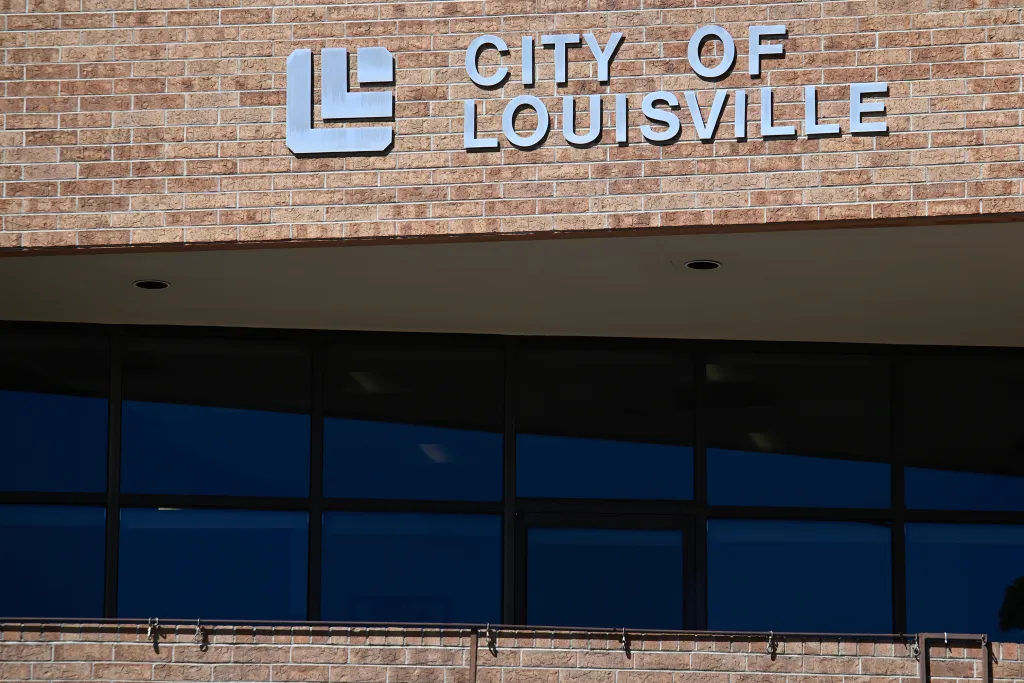
By Beth Eldridge, Annmarie Jensen and Marylou Dobbins
Have you ever heard of an “affordable housing initiative” that will halt applications that are in progress to build affordable housing, make homes more expensive, radically undermine the elected City council and negate over 2,000 citizens’ participation in comprehensive planning?
Two upcoming ballot initiatives, 300 and 301, in Louisville are threatening to derail years of community planning under the misleading guise of “affordable housing.” These proposals claim to promote affordability, but as advocates for affordable housing, Together Colorado believes they would do the opposite. Instead, they would eliminate nearly all new residential development, likely cancel affordable housing projects currently in the pipeline, drive up home prices, and strip decision-making power from elected officials and engaged citizens.
Both measures are widely opposed by affordable housing developers and experts, business and community leaders and faith groups. For example, Louisville’s City Council unanimously opposes Measures 300 and 301, along with Flatirons Habitat for Humanity, Louisville Chamber of Commerce, Louisville Downtown Business Association, Together Colorado and YIMBY North Metro.
Ballot initiative 300 demands that 30% of all new housing on converted commercial land be affordable — which is more than double Louisville’s current 12% requirement. While that may sound progressive, in reality, it’s a poison pill. No developer can meet that threshold without major subsidies and incentives, which the initiative does not provide. As a result, developers will go anywhere but Louisville.
Under the current 12% inclusionary zoning, developers are stepping forward to build mixed-income housing in Louisville. Those projects would perish if the 30% rule passes. State law also requires cities to give developers alternatives, such as land donations or fees in lieu of building units themselves. This initiative violates the law by offering no such options, thereby opening the city to potential legal challenges.
Ballot initiative 301 uses vague language about making “growth pay its own way” to mask a rigid anti-development agenda. It would impose duplicate fees on builders — many of which already exist — and prevent the city from waiving fees to encourage affordable housing. Worse, it disempowers expert planners and elected officials with a new “impact fee liaison committee,” adding unnecessary bureaucracy and further slowing projects.
Cities that want to encourage affordable housing do the opposite: They streamline processes and offer incentives. This initiative would freeze residential development by driving up costs and delaying the process, which is especially harmful to teachers, first responders and young families who need affordable homes in Louisville.
These initiatives don’t just threaten housing — they undermine Louisville’s democratic planning process. Over 2,000 citizens contributed to the city’s comprehensive plan, and elected leaders have spent years developing a balanced approach to growth. These proposals bypass the public process and replace it with restrictive mandates and red tape.
Meanwhile, Louisville’s population is shrinking while its median home price hovers near $900,000. The city’s 2023 housing study recommends building more moderate-density housing on underused commercial sites to meet the needs of its aging population, moderate-income residents, and its increasing number of smaller households. With limited vacant residential land available, the only path forward is converting commercial land to residential — something these initiatives would make nearly impossible.
Together, people across race and class in Louisville can reject these measures and build a city where everyone — not just the wealthy few — has a place to call home.
Vote “no” on 300 to protect affordable housing. Louisville deserves real solutions that support the housing needs of working families, seniors and businesses — not a housing ban that will only make things worse.
Vote “no” on 301 to preserve local planning and democratic decision-making.
Dr. Beth Eldridge, Annmarie Jensen and Marylou Dobbins are the Leaders of Together Colorado Boulder County Organizing Committee.



